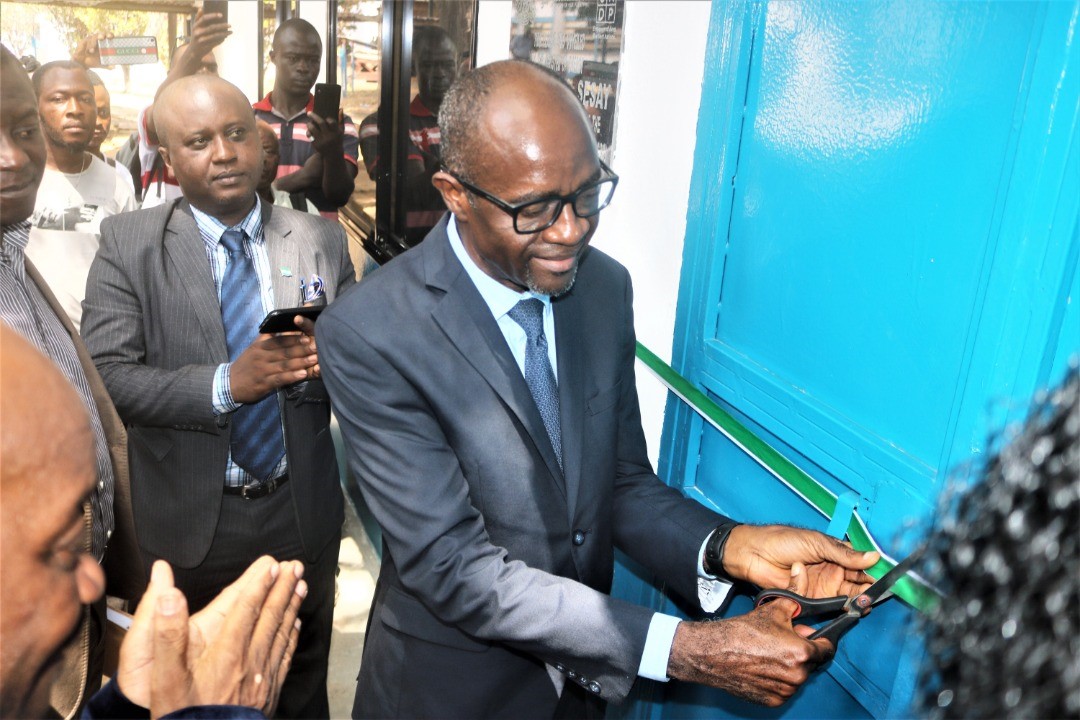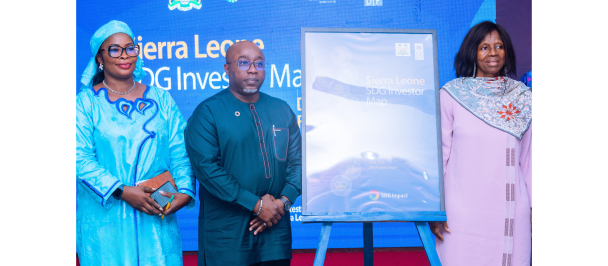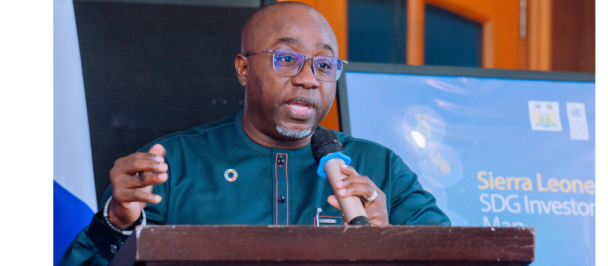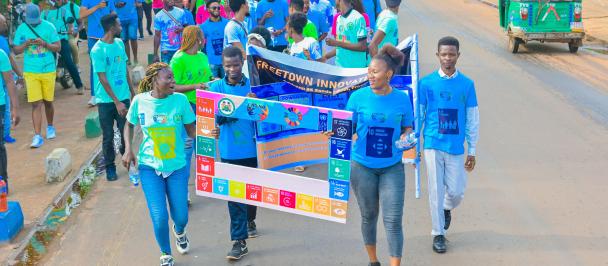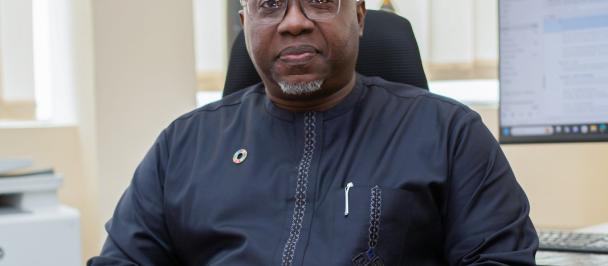12 March 2020
Handover Ceremony of Charcoal and Cookstove Development Centre and Testing Laboratory to GTI - Government of Sierra Leone Kissy Dockyard, Freetown
Honourable Minister Sesay,
HonourableMinister Prof. Jaward,
Honourable Minister Prof. Gbakima,
GTI Principal Ing. Lamin,
Distinguished Ladies and gentlemen,
All protocols observed.
It gives me and my colleagues at UNDP immense pleasure to welcome everyone on the occasion of handing over the Cookstove Testing Laboratory which took some time due to a number of challenges.
Financing the construction of this facility, procuring, installing and training the CCDC staff and stakeholders was possible due to generous funding by the Global Environment Facility and the United Nations Development Program. The coordination and management of the activities leading to the establishment and commissioning of this testing facility was funded under the aegis of the UNDP/GEF project Energy Efficient Production and Utilization of Charcoal project (EEPUC).
Energy access and cooking energy issues remain an important policy objective of Government of Sierra Leone (GoSL) with 99.7% of the population dependent on solid biomass fuels. Use of charcoal has been increasing steadily in Sierra Leone and in particular, urban areas including Freetown. It is estimated that about 289 tons of charcoal are consumed daily in Freetown alone. This charcoal is produced inefficiency using traditional charcoal making techniques and yield low amounts of charcoal.
The charcoal stoves used in Freetown and other urban areas mostly have low levels of efficiency and are often fabricated in temporary and makeshift facilities. This inefficient production and use of charcoal are resulting in large scale deforestation in the country and it is estimated that over 533,000 Ha of forest area is required every year for meeting the current charcoal needs.
While all of this sounds very sobering, it is actually possible to reduce almost 40-70% of the charcoal consumption through the use of efficient charcoal stoves alone. Some local manufacturers such as Westwind Energy, an EEPUC project partner already make efficient stoves locally which can halve the charcoal consumption. So, the technology solution for the charcoal problem is already available in the country and if we can solve some of the policy, regulatory, financing and institutional barriers to charcoal value chain efficiency, we can significantly reduce charcoal consumption and the associated deforestation.
Since inception in 2016, the UNDP/GEF EEPUC project has made achievements in addressing these barriers. Some of which I would like to highlight:
1) established 40 Ha of community managed woodlots that can be sustainably harvested for charcoal production.
2) trained 200 charcoal makers and cookstove fabricators in efficient charcoal production and manufacture of efficient stoves.
3) supported MoE to update the national energy policy and strategic plan and develop a new bioenergy policy.
4) supported MoE in the validation of a cooking energy action plan two weeks ago here in Freetown which will also drive actions related to efficiency of charcoal value chain, sustainable wood fuel production as well as alternative fuels like biogas, agro-residues and Liquified Petroleum Gas (LPG).
One of the major activities of the EEPUC project with funding from the Global Environmental Facility and the United Nations Development Program is the reason why we are here today which is the establishment of the CCDC Cookstove Testing Laboratory which is a modern building to accommodate state of the art laboratory equipment that has been installed and commissioned. We can be proud that this is the first of such a cookstove testing facility in the Mano River Union countries and the sixth in the ECOWAS region.
The establishment of these cookstove test will allow for the enforcement of efficiency standards for charcoal stoves in Sierra Leone and encourage more local manufacturers to move their product range towards higher efficiency. It is also hoped that the technical capability developed at CCDC through this experience can also help local manufacturers to improve efficiency, safety and affordability of cookstoves and charcoal kilns.
I also want to take the opportunity to encourage Ministry of Energy and Sierra Leone Standards Bureau (SLSB) to establish a national framework for testing and certification of charcoal stoves that will encourage manufacturers to increase the efficiency of cooking devices and utilise the facilities at CCDC. MOE and the SLSB may also consider a labelling system or a similar mechanism to help customers distinguish efficient charcoal stoves from inefficient ones. Such actions will will ensure the utilisation of the test lab and encourage increased purchases and use of efficient cookstoves by households, commercial establishments and institutions.
An innovative approach for the government to create demand for efficient charcoal stoves and services of CCDC would be to ensure that all the charcoal stoves purchased by GoSL institutions are from manufacturers who have models tested and certified by CCDC. Such green procurement programmes are being implemented by other national governments in Africa and elsewhere. Similarly, GoSL may also limit any future financing schemes using national or international funds to charcoal stoves to models that are tested and certified.
There may be a need for continued support to CCDC to upgrade equipment to meet new ISO standards and also support continued capacity building of CCDC and SLSB. There is benefits from regional and international networking among stove testing laboratories and hope that partners such GIZ EnDev can support CCDC/GTI and SLSB on this front within your programmes.
Finally, GTI has the important responsibility to sustainably operate and manage the CCDC to international standards and meet national demands and expectations. We encourage GTI to develop a business plan and a plan for self-sustenance for CCDC and continue to seek guidance and support from GoSL and the international development community including UNDP in implementing the plan.
While concluding, I would again like to thank GoSL for being a valued partner to UNDP and to GTI for hosting the CCDC. We at UNDP hope to see CCDC develop into a regional center of excellence in cooking energy and charcoal issues supporting the energy sector objectives of GoSL and support the achievement of SDG7 targets on clean cooking.
Thank you for your kind attention.

 Locations
Locations